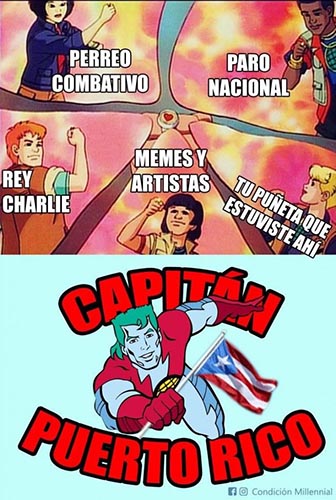
Our Governor Resigned via Facebook: #RickyRenuncia, Puerto Rico’s Summer of Protest
On July 13th, the Centro de Periodismo Investigativo (Center for Investigative Journalism) leaked 889 pages of a Telegram App chat between the governor of Puerto Rico, Ricardo “Ricky” Rosselló and eleven cabinet members and aides. The 889 pages were full of misogynist, homophobic, and classist comments about political figures, journalists, artists like Ricky Martin, and average citizens. They mocked the victims of hurricane María, which left 4,645 dead, saying “don’t we have some cadavers to feed our crows?” Memes citing the most egregious statements quickly began circulating through social media alongside early calls for the governor to resign. But beyond such insulting statements, the chat revealed complex corruption schemes and provided evidence of persecution of the governor’s political opponents. (read more...)
